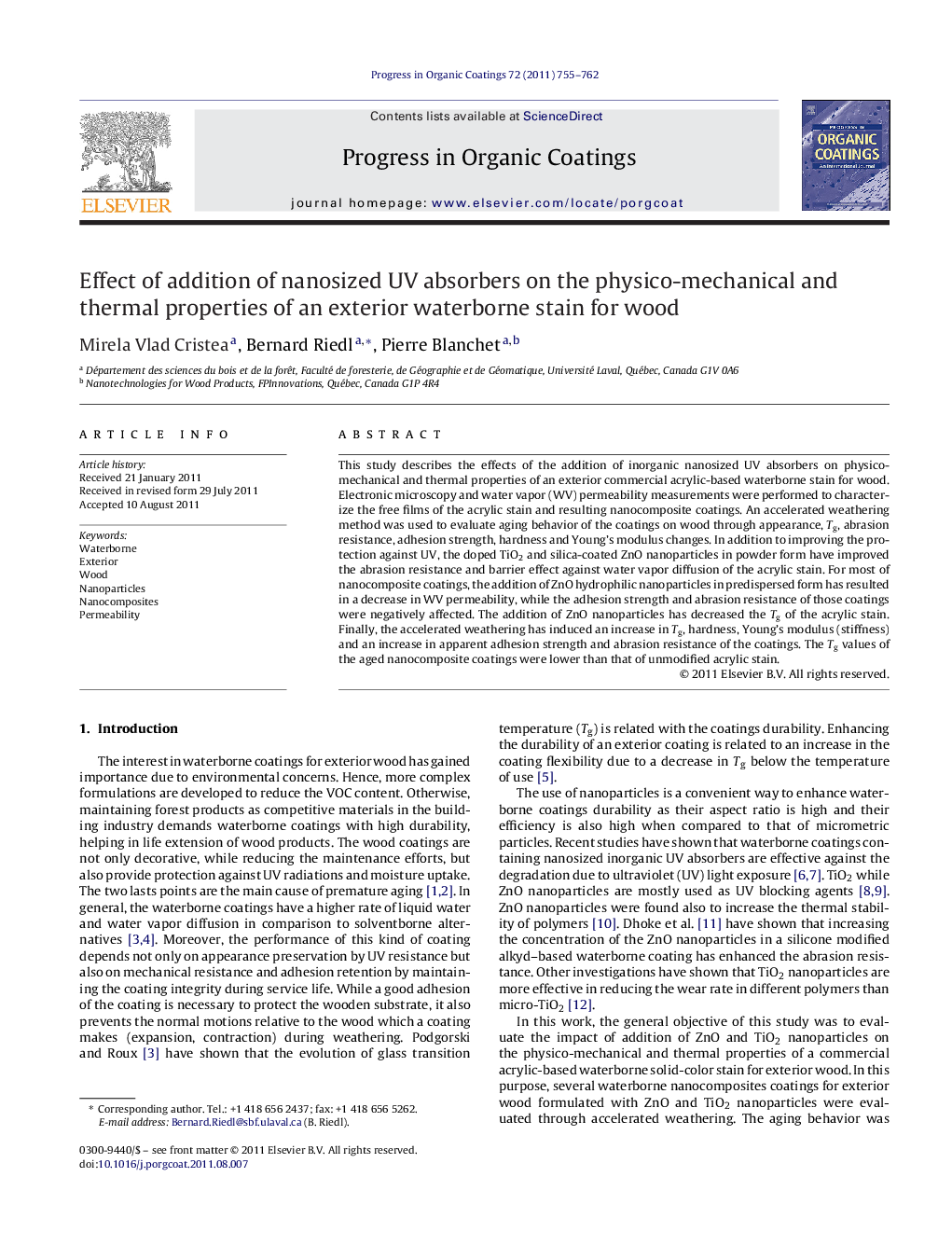| Article ID | Journal | Published Year | Pages | File Type |
|---|---|---|---|---|
| 693159 | Progress in Organic Coatings | 2011 | 8 Pages |
This study describes the effects of the addition of inorganic nanosized UV absorbers on physico-mechanical and thermal properties of an exterior commercial acrylic-based waterborne stain for wood. Electronic microscopy and water vapor (WV) permeability measurements were performed to characterize the free films of the acrylic stain and resulting nanocomposite coatings. An accelerated weathering method was used to evaluate aging behavior of the coatings on wood through appearance, Tg, abrasion resistance, adhesion strength, hardness and Young's modulus changes. In addition to improving the protection against UV, the doped TiO2 and silica-coated ZnO nanoparticles in powder form have improved the abrasion resistance and barrier effect against water vapor diffusion of the acrylic stain. For most of nanocomposite coatings, the addition of ZnO hydrophilic nanoparticles in predispersed form has resulted in a decrease in WV permeability, while the adhesion strength and abrasion resistance of those coatings were negatively affected. The addition of ZnO nanoparticles has decreased the Tg of the acrylic stain. Finally, the accelerated weathering has induced an increase in Tg, hardness, Young's modulus (stiffness) and an increase in apparent adhesion strength and abrasion resistance of the coatings. The Tg values of the aged nanocomposite coatings were lower than that of unmodified acrylic stain.
Graphical abstractFigure optionsDownload full-size imageDownload as PowerPoint slideHighlights► Inorganic nanosized UV absorbers have been added to a waterborne stain for wood. ► An accelerated weathering method was used to evaluate aging behavior of the coatings. ► The TiO2 and ZnO nanoparticles have improved the abrasion resistance of the stain. ► The addition of ZnO nanoparticles has decreased the Tg of the acrylic stain.
